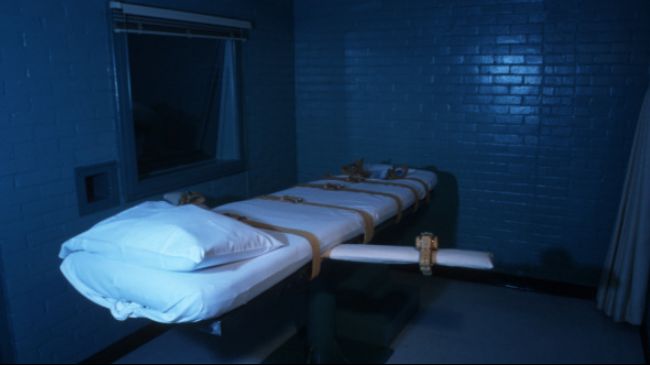EU outraged by botched execution in Oklahoma

Europeans are outraged by the recent botched execution of an African American inmate in the US state of Oklahoma.
The prolonged lethal injection of Clayton D. Lockett, 38, stirred controversy Tuesday when the lethal drug did not work as it should have and the doctor had to halt the procedure. The inmate suffered a heart attack after forty minutes and died, triggering claims of torture by attorneys for the death row inmate.
Lockett was administered a new and untested three-drug combination. Following the injection, Lockett writhed on the gurney, clenched his teeth, and strained to lift his head off the pillow before he died, according to witnesses.
Death penalty is banned in the European Union, so is the export of sedatives like sodium thiopental that are used in lethal injections.
The drug’s producer stopped making them, fearing EU sanctions, while other companies try to make sure their drugs are not shipped to the US for executions.
US states with death penalty have been seeking new alternatives by mixing drugs to execute death row inmates.
Europeans feel outraged by the long suffering that Lockett had to endure before his death and agreed with Madeline Cohen, Lockett’s lawyer who witnessed the execution and said his client was “tortured to death.”
Robert Badinter, a former minister of justice who played a key role in banning the death penalty in France in 1981, denounced “methods that are even more barbaric than ordinary barbarism.”
Britain and France issued official statements condemning the controversial execution in Oklahoma and called for the abolition of the death penalty in the United States.
Cayetana Álvarez de Toledo, a member of Spain’s Parliament from the governing conservative Popular Party, said that “botched or not, unnecessarily gruesome or technically flawless, executions are unacceptable.”
Ironically, Lockett and another death row victim had filed a lawsuit to make the prison authorities reveal their source of lethal drugs so they could make sure the injection would not lead to unnecessary pain and suffering.
The Oklahoma Supreme Court, however, ruled that the prison did not need to reveal details on its sources of the drug.
The tragic end to Lockett’s life caused Oklahoma to postpone the execution of the second African American inmate, Charles Warner, for two weeks.
Maya Foa of Reprieve, a British organization working against the death penalty, said, “States need to stop conducting secretive, experimental executions.”
“It is also a clear demonstration of why no responsible pharmaceutical firm or pharmacy wants to get involved in selling drugs to executioners. How many more of these horrifying events will it take before the authorities in Oklahoma and elsewhere get the message?” Foa asked.








